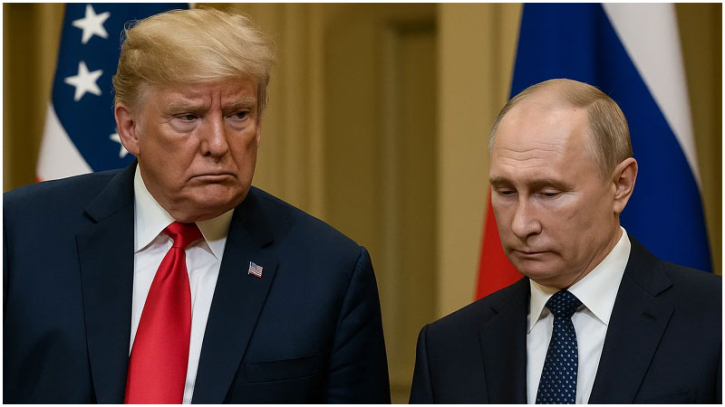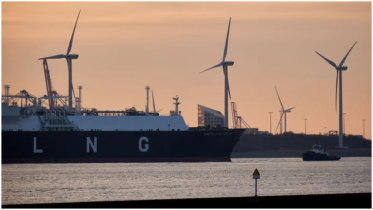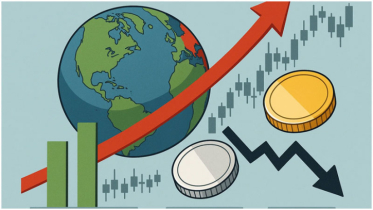Trump-Putin summit postponed as Russia rejects Ukraine ceasefire push

A planned summit between US President Donald Trump and Russian President Vladimir Putin has been put on hold after Moscow rejected calls for an immediate ceasefire in Ukraine, dimming hopes for renewed peace negotiations.
A senior White House official told Reuters there were “no plans for President Trump to meet with President Putin in the immediate future” following a “productive call” between Secretary of State Marco Rubio and Russian Foreign Minister Sergei Lavrov. The two officials opted against an in-person meeting.
Trump had announced last week that he and Putin would soon meet in Hungary to seek an end to the war in Ukraine. However, Russia has refused to consider concessions, insisting that Ukraine must surrender additional territory before any ceasefire.
According to US officials, Moscow recently sent Washington a “non-paper” reiterating its terms for peace, which include full control over the eastern Donbas region. The proposal effectively dismissed Trump’s suggestion for a ceasefire based on current frontlines. Russia currently holds all of Luhansk province and roughly 75 percent of neighboring Donetsk.
European leaders urged Washington to maintain its demand for an immediate ceasefire using the present battle lines as the foundation for future talks. NATO Secretary General Mark Rutte traveled to Washington on Tuesday for discussions with Trump, which are expected to take place Wednesday. A Western official said Rutte planned to convey Europe’s views on a potential ceasefire and the framework for future peace negotiations.
Trump, who spoke with Putin by phone last week and met Ukrainian President Volodymyr Zelenskiy in Washington, had sought another high-profile meeting with the Russian leader after their August summit in Alaska failed to yield progress. However, a preparatory meeting between Rubio and Lavrov, scheduled for Thursday in Budapest, has been postponed.
Lavrov told reporters that the timing and location of the next Trump-Putin summit were less important than implementing the understandings reached in Alaska. Kremlin spokesman Dmitry Peskov confirmed that no date had been set, saying “serious preparation” was still needed.
“Listen, we have an understanding between the presidents, but we cannot postpone what has not been finalized,” Peskov said. “Neither President Trump nor President Putin gave exact dates.”
Despite the postponement, both sides have avoided formally canceling the summit. Hungarian Foreign Minister Peter Szijjarto, writing on Facebook from Washington, said, “We have some serious days ahead.”
European diplomats interpreted the delay as a sign that Washington is unwilling to proceed with the summit unless Russia softens its demands. “The Russians wanted too much, and it became evident to the Americans there would be no deal for Trump in Budapest,” said one diplomat. Another added, “The Russians haven’t changed their position at all and are not agreeing to ‘stop where they are.’”
European governments have voiced concern that Trump might meet Putin again without securing meaningful concessions. In a joint statement Tuesday, leaders from Britain, France, Germany, and the European Union said they “strongly support President Trump’s position that the fighting should stop immediately, and that the current line of contact should be the starting point of negotiations.”
Trump’s stance on Ukraine has varied, but after meeting Zelenskiy last week, he publicly endorsed a ceasefire along the existing frontlines, matching Kyiv’s long-held position. Reports from the closed-door session suggested tensions, with Trump pressing Zelenskiy to consider some Russian demands. Zelenskiy, however, described the outcome as a success, emphasizing Trump’s public backing of a ceasefire.
European leaders are expected to meet Zelenskiy later this week at an EU summit and a gathering of the “coalition of the willing,” which will discuss creating an international security force for post-war Ukraine—an idea Moscow rejects.
The choice of Budapest as a potential summit site has drawn criticism within the EU, as Hungary’s Prime Minister Viktor Orban maintains close ties with Moscow. Any visit by Putin would require flying through EU airspace. Poland warned Tuesday it could force Putin’s plane down and arrest him under an international warrant if he crossed its territory, while Bulgaria said it would allow him to pass through its airspace to reach the meeting.
.png)




